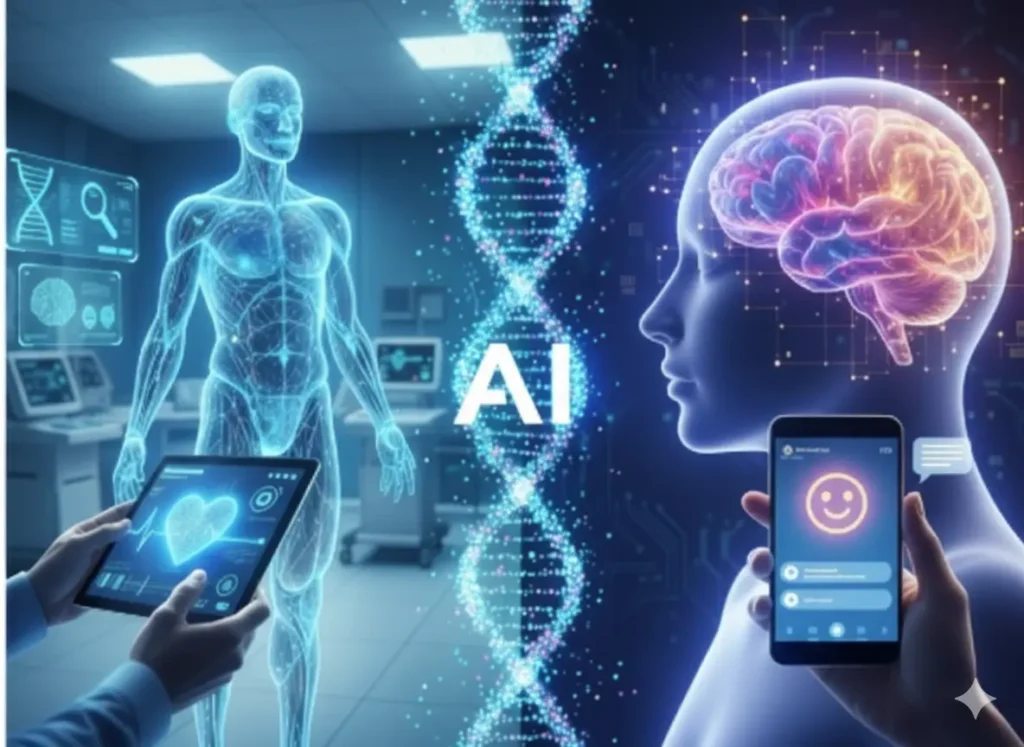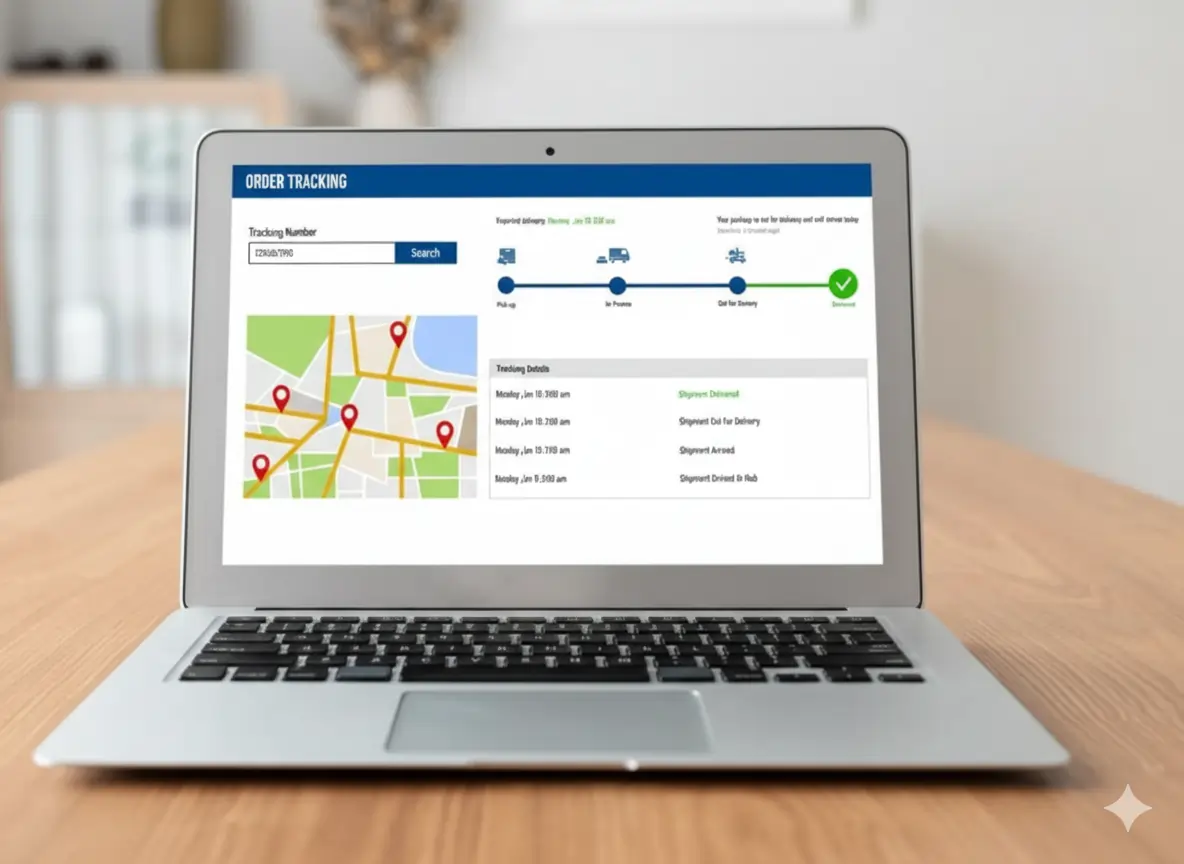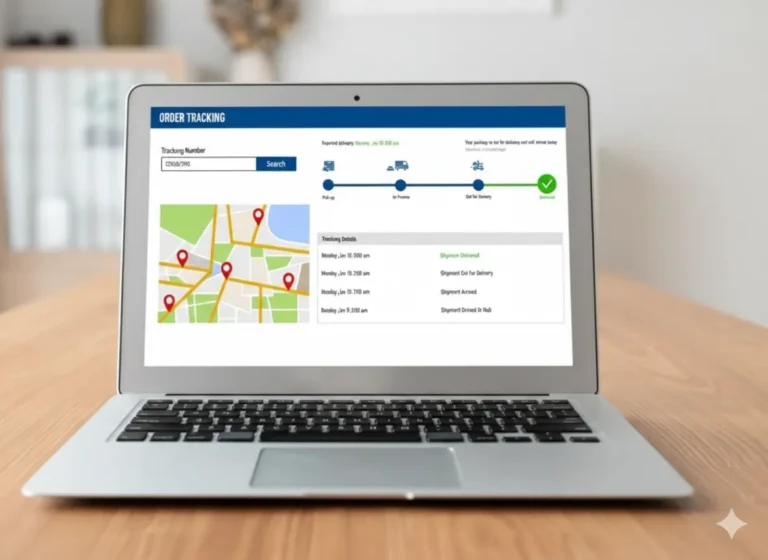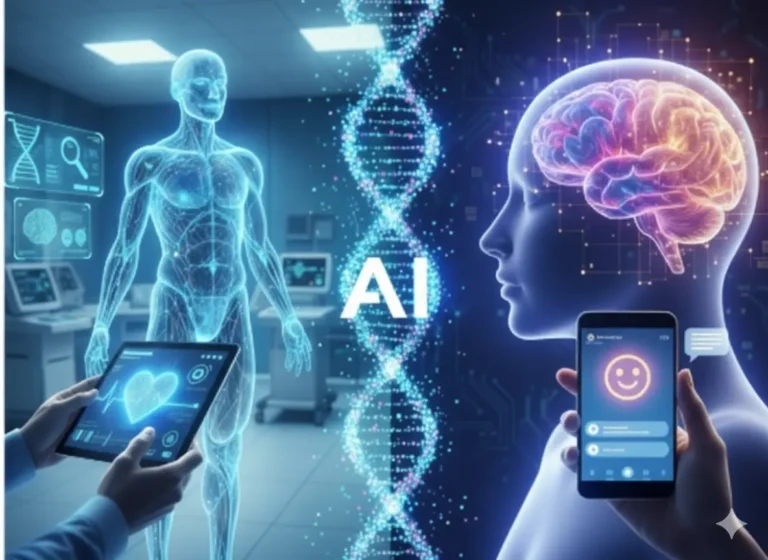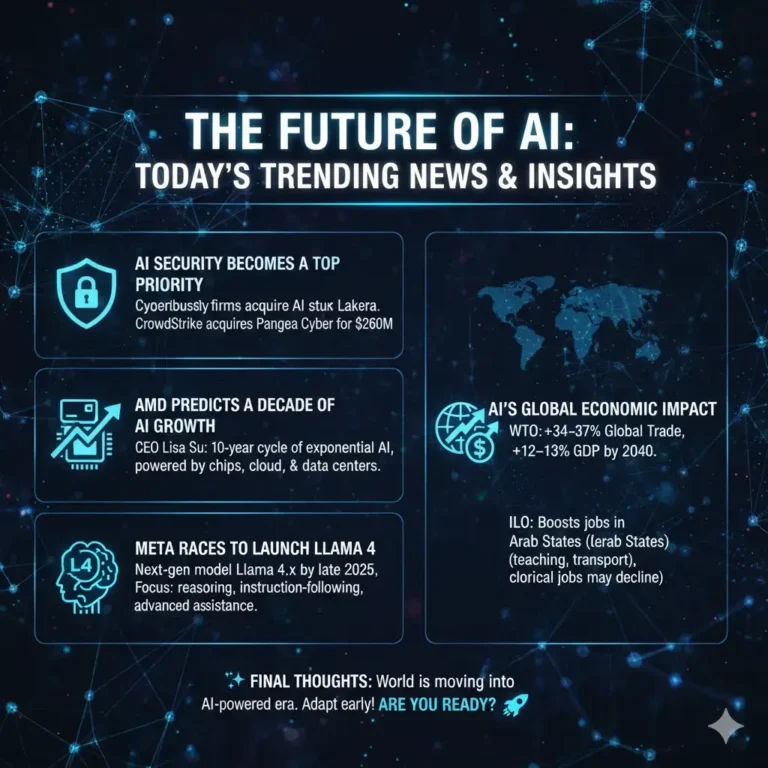The Emerging of AI in Physical and Mental Health
Artificial Intelligence (AI) is rapidly emerging as a transformative force across physical and mental health. From accelerating diagnostics and personalizing treatment plans to supporting mental well-being through scalable interventions, AI blends data, algorithms, and human expertise to improve outcomes, increase access, and reduce costs. This article highlights practical applications, benefits, risks, and recommendations for responsible adoption in healthcare and mental health services.
“The best AI augments human care — strengthening clinical judgement, extending access, and preserving human dignity.”
AI in Physical Health
AI-enabled tools are improving clinical workflows and patient outcomes across prevention, diagnosis, treatment, and monitoring. Key use cases include:
- Medical imaging and diagnostics: Deep learning models assist radiologists by detecting anomalies in X-rays, CT, and MRI scans with high sensitivity, enabling earlier intervention for conditions like cancer or stroke. (NIH research on AI in imaging)
- Drug discovery and genomics: AI speeds target identification, predicts molecule behavior, and prioritizes candidate compounds, shortening development cycles and lowering RandD costs.
- Remote monitoring and wearables: Continuous sensors and AI analytics detect early signs of deterioration (arrhythmias, respiratory issues), enabling proactive care and fewer hospital readmissions.
- Operational optimization: Hospitals use AI to optimize scheduling, bed allocation, and supply chains, improving efficiency and patient throughput.
Benefits for Physical Health
- Faster, more accurate diagnoses
- Personalized treatment plans informed by multi-modal data
- Improved remote care and chronic disease management
- Resource optimization in health systems
Risks and Mitigations
- Bias and equity: Ensure diverse training data and fairness audits.
- Explainability: Use interpretable models or explanation layers for clinical acceptance.
- Privacy: Enforce strong data governance, anonymization, and consent frameworks.
- Regulation and validation: Conduct clinical trials and comply with medical device standards.
AI in Mental Health
Mental health benefits from AI in unique ways: scalable screening, personalized interventions, and continuous support outside clinic walls. AI applications include:
- Symptom screening and risk prediction: Natural language processing (NLP) and behavioral data models can flag early signs of depression, anxiety, or suicide risk for timely clinician follow-up. (WHO on mental health)
- Digital therapeutics and CBT bots: Guided conversational agents provide evidence-based exercises (CBT, mindfulness) that supplement therapy and extend care between sessions.
- Personalized care pathways: Recommendation systems suggest therapy modules, pacing, or clinician referral based on user responses and progress.
- Outcome measurement: AI tracks subtle changes in speech, sleep, and activity to quantify treatment response and adapt care plans.
Benefits for Mental Health
- Increased access through low-cost digital tools
- Reduced waiting times with prioritized triage
- Continuous, non-stigmatizing support
- Data-driven personalization of therapy
Ethical Considerations and Safety
Because mental health interventions can be sensitive, AI solutions must prioritize safety: rigorous validation, human supervision for high-risk cases, clear escalation paths to clinicians, privacy protections, and transparent communication with users about capabilities and limits.
Recommendations for Responsible Adoption
To harness AI safely in physical and mental health, organizations should:
- Run clinical validations and peer-reviewed studies before deployment.
- Implement multi-stakeholder governance (clinicians, patients, ethicists, engineers).
- Design for inclusivity — test across demographics and settings.
- Provide clinician-in-the-loop workflows to preserve human oversight.
- Measure real-world outcomes and iterate responsibly.
Internal Resources and Further Reading
Explore related internal pages for how AI impacts security, personalization, and integration:
- AI, Security, Growth and Economy — Webbistan Blog
- AI-Powered Personalization in Digital Marketing — Webbistan Consultancy
- AI Integration and CRM Solutions — Webbistan Services
Ready to explore implementation?
Are You Ready For Your Next-Level Website?
Conclusion
AI’s emergence in physical and mental health offers powerful tools to augment clinical care, expand access, and deliver personalized support at scale. Success depends on rigorous validation, ethical design, and continuous human oversight. Looking ahead, AI will likely become a companion to clinicians rather than a replacement, offering decision support and improving patient outcomes while reducing system strain. At the same time, mental health applications must be developed with compassion and care, ensuring that vulnerable individuals are protected and empowered. When responsibly integrated, AI has the potential not only to strengthen health systems but also to transform how society approaches well-being, making care more proactive, accessible, and humane for future generations. (Nature Digital Medicine on AI in healthcare)

